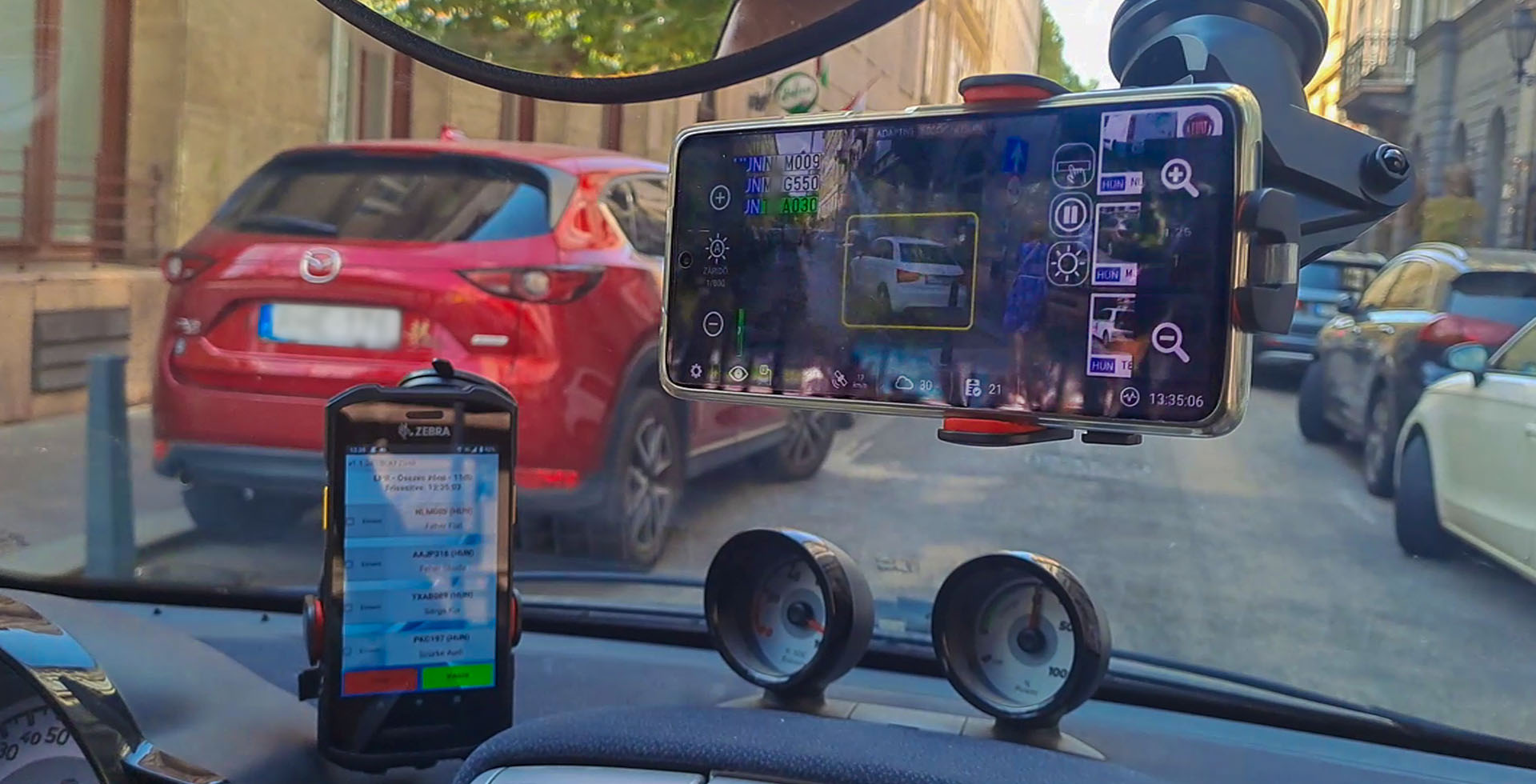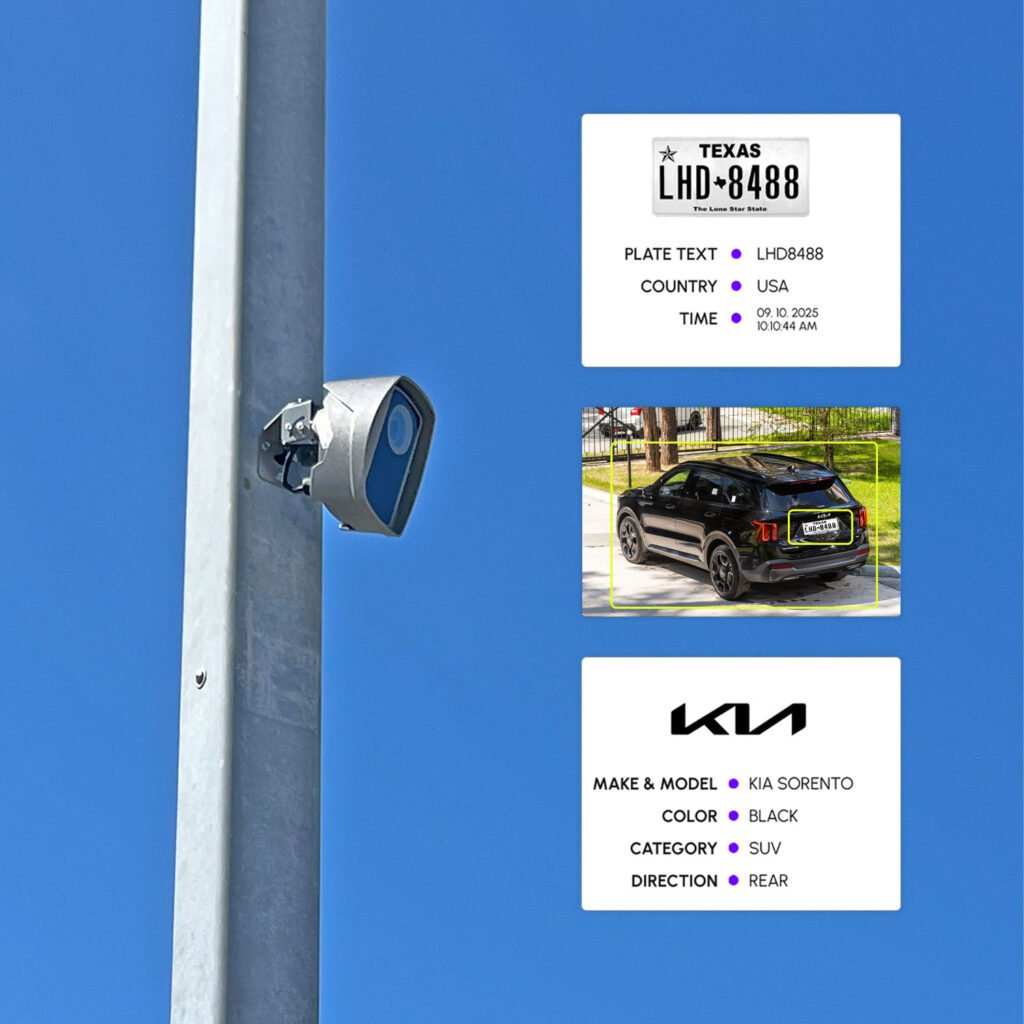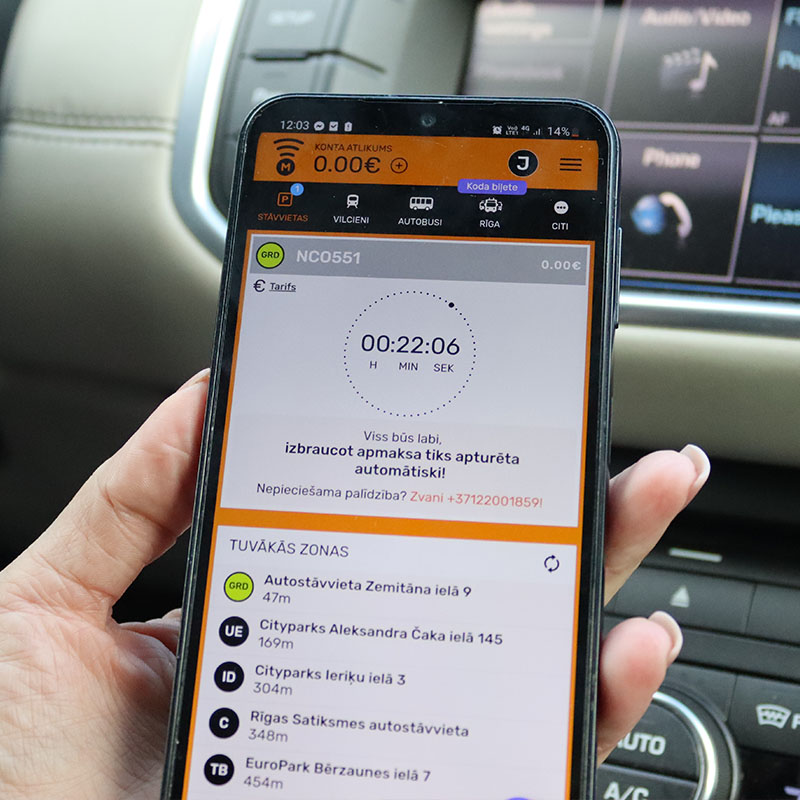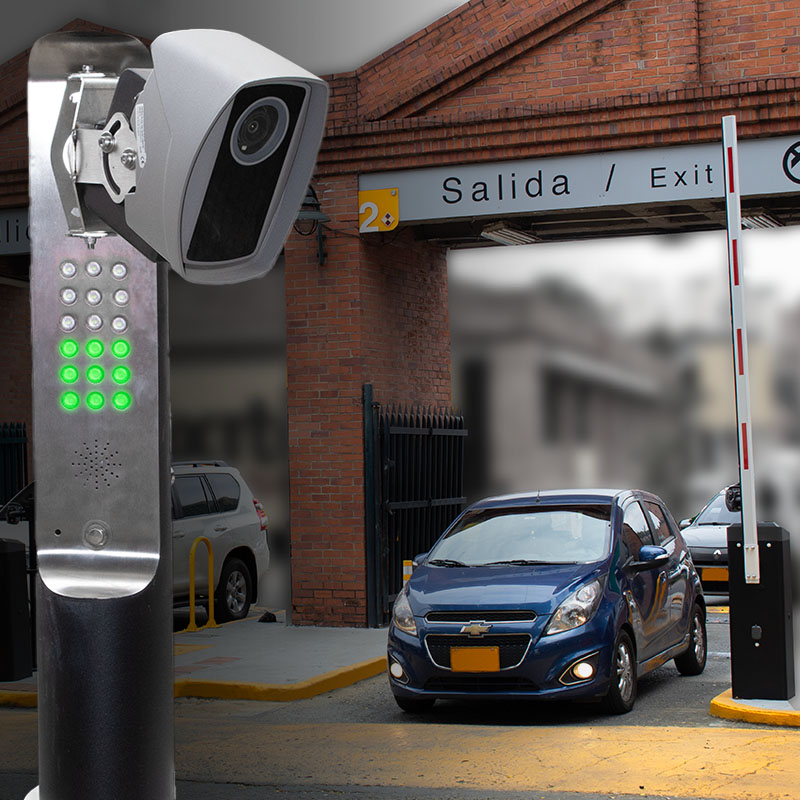In Budapest, the Belváros-Lipótváros Public Service and Government started a project in April 2023 to update and streamline their parking enforcement system. Their goal was to improve efficiency and lower operational expenses; therefore, they were looking for a solution that could integrate with their current parking monitoring software and improve their inspectors’ workflows. To achieve this goal, they initiated a project to introduce a new feature to their parking system that accelerates inspections and enhances security. They found the solution they were looking for in Adaptive Recognition’s Carmen® Mobile ANPR/LPR Application.
The Challenge
The increasing need to utilize urban parking spaces effectively, gather real-time data, and reduce the time inspectors spend covering their territory posed challenges for the traditional on-foot patrol method used by inspectors to monitor parking.
Therefore, the Public Service office sought a solution to:
- Efficiently cover larger areas without compromising accuracy.
- Decrease the reliance on a large inspector workforce.
- Offer real-time updates on parking violations, permit statuses, and mobile parking payments.
- Ensure consistent performance in various weather conditions, which previously affected on-foot patrols.
Ultimately, the goal was to optimize parking enforcement and gain a more precise understanding of parking space utilization while maintaining or improving inspection quality.
Solution and Implementation
To tackle these obstacles, they devised a fresh method for monitoring parking by implementing the Carmen® Mobile ANPR application on the industrial PDAs already utilized by inspectors, as well as on their mobile phones. The solution involved incorporating electric scooters in the patrol routine as well, which greatly increased the scope and pace of inspections.
Implementation Timeline:
- April 2023: The project idea was conceived, initially focusing on using electric scooters for parking inspections.
- September 2023: Live testing began with both scooter-based and pedestrian-based inspections running in parallel.
- February 2024: Full-scale implementation occurred, where all inspectors began using the new technology, relying on Carmen® Mobile integrated into their existing PDA devices.
The testing of the integration involved early trials on a range of devices, including the industrial PDAs utilized by inspectors and mobile phones. During the trials, they adjusted the Carmen® Mobile application to their needs and continued testing it on the industrial PDAs, until all parking inspectors transitioned to the new system using their current industrial devices.
In parallel, electric scooter-based inspections were done using multiple devices to optimize the software’s efficiency. By doing this, the inspectors could cover both sides of the inspected street, enhancing overall effectiveness. A huge achievement of this new system is that fewer inspectors could attend to more vehicles in less time, patrolling on both electric scooters and cars.

When using the Carmen® Mobile ALPR app, inspectors receive immediate feedback on license plates. The user-friendly interface allows inspectors to quickly determine whether a specific vehicle has an active mobile parking ticket or district parking permit. The system provides alerts—such as the license plate lighting up in red, device vibrations, or beeping sounds in the video stream—when a certain vehicle lacks the necessary permits.
Ultimately, the Public Service managed to retain its well-established parking monitoring software while incorporating a new layer of functionality through Carmen® Mobile. In conclusion, inspectors could now cover more ground in less time, receive instant feedback on parking permits, and address violations more efficiently.
Results: 3x Efficiency Than Before
The introduction of the new technology was very successful. By integrating Carmen® Mobile and utilizing electric scooters, the team discovered that a single inspector on a scooter could cover an area equivalent to that of three pedestrian inspectors, greatly enhancing operational efficiency.
The main results are:
- Enhanced efficiency: Inspectors were able to cover larger areas in less time while maintaining accuracy in detecting violations.
- Reduced operational costs: Fewer inspectors were needed to perform parking monitoring tasks, freeing up resources.
- Real-time feedback: The system provided immediate feedback on recognized license plates, alerting inspectors if a vehicle lacked the necessary permits or mobile parking payments.
- All-weather capability: With car-based inspections also included, the new system performed consistently, unaffected by weather conditions.
- Efficient monitoring of inspectors’ work: The system enabled better oversight of inspectors, ensuring accountability and effectiveness in their duties.
By February 2024, the Public Service had fully transitioned to the new system, successfully meeting the objectives of improved parking enforcement and greater operational efficiency. The integration of Carmen® Mobile, along with the utilization of electric scooters and cars, proved that technology could successfully modernize urban parking enforcement, reducing costs and optimizing processes. Reflecting on the project, a team member stated:
“During the entire project period, the collaboration was exceptionally high-level with Adaptive Recognition’s team. As end-users, we believe that the system’s continuous support remains at the highest level even after the project’s completion. We achieved the goal we aimed for.”
In conclusion, Belváros-Lipótváros Public Service and Government successfully modernized its parking monitoring system, increasing efficiency, and laying the foundation for more scalable and sustainable urban mobility management.
Have a look at a video by Belváros-Lipótváros to learn how Carmen Mobile is simplifying its parking enforcement. Click here to watch the video.






